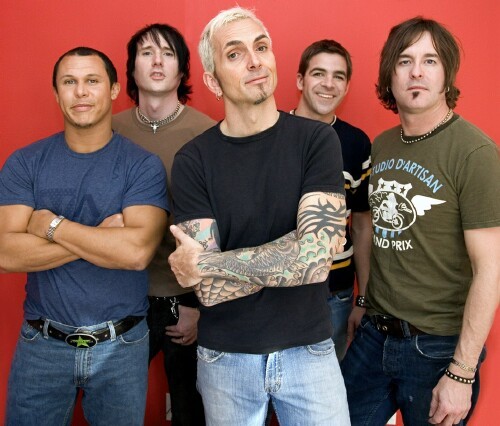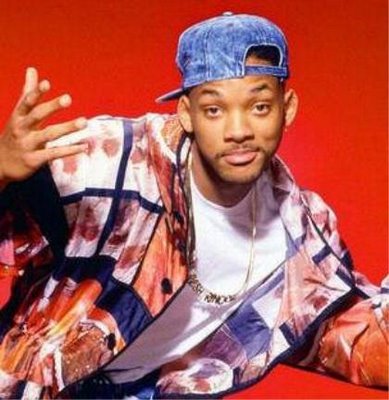Sound Familiar?
“You Oughta Know,” “Ironic,” “Thank U”
Who Is She?
The reigning Canadian queen of angsty girl music.
Before Alanis Morissette was ripping Dave Coulier a new
asshole in “You Oughta Know,” she was flexing her acting muscles in You Can’t Do That on Television and
crooning Top 40 hits in Canada. In 1991, Alanis released her debut album Alanis, which eventually went platinum.
Of course, it was only released in her native country.
The dance-pop debut earned Alanis the title of “The Debbie Gibson of Canada.” (You ‘80s babies should get the reference.) Alanis spawned the glitzy single “Too
Hot,” which gained a handful of Juno Award nominations. (Fun fact: Alanis’
first tour was as an opener for Vanilla Ice.)
A year later, our Canadian queen released a ballad-driven
follow-up called Now Is the Time. It
was a commercial failure, but paved the way for a more personal third album
that you may have heard of.
Keep in mind that Alanis wasn’t even out of high school when
she released her first two albums. After graduating in 1993, she moved to
Toronto to start recording Jagged Little
Pill. By spring of 1995, Alanis had completed the album and signed with
Maverick Records (only after almost every other label had passed on the album).
Jagged Little Pill was
released internationally in 1995 and was only expected to sell enough copies to
pay the bills. But once influential Los Angeles radio station KROQ-FM put “You
Oughta Know” into rotation, Alanis’ popularity snowballed.
Once “You Oughta Know” hit MTV, Jagged Little Pill went straight to the top of the charts.
Subsequent singles “All I Really Want” and “Hand In My Pocket” enjoyed moderate
success, but it was “Ironic” that proved to be Alanis’ biggest hit.
Jagged Little Pill is
currently in the top 20 best selling records of all time, beating out
Purple Rain and Abbey Road. How’s
that for success?
The album also earned four Grammys in 1996, including Album
of the Year.
Following the 18-month tour, Alanis decided that she needed
a vacation, so she headed to India for six weeks.
In 1998, Alanis was featured as a guest vocalist on Ringo
Starr’s album Vertical Man and Dave
Matthews Band’s Before These Crowded
Streets. She also contributed the hauntingly gorgeous track “Uninvited” to
the City of Angels soundtrack, which
won the 1999 Grammy for Best Rock Song.
The follow-up to Jagged
Little Pill was 1998’s Supposed
Former Infatuation Junkie. Considering the fact that matching the success
of such a huge record is almost impossible, Infatuation
Junkie did surprisingly well.
The wordy lyrics alienated many fans and Infatuation Junkie ended up selling
considerably less than its predecessor. However, it still received positive
reviews, including a four-star review from Rolling Stone.
Alanis rounded out the decade with an appearance at the
disastrous Woodstock ’99 and a tour with fellow singer/songwriter Tori Amos.
Where Is She Now?
Still releasing albums, though slightly less angsty.
In 2001, Alanis released Under
Rug Swept, which featured guest musicians Eric Avery (of Jane’s Addiction),
Dean DeLeo (of Stone Temple Pilots), Flea (of Red Hot Chili Peppers) and
Meshell Ndegeocello.
The songstress caused a little controversy in 2004 with her
appearance at the Juno Awards. Alanis hosted the ceremony dressed in a
bathrobe, which she took off to reveal a flesh-colored bodysuit. The stunt was
a response to increased US censorship following Janet Jackson’s “wardrobe malfunction” during the Super Bowl XXXVIII halftime show.
Unfortunately, the increased censorship also hindered
Alanis’ promotion of her next album, 2004’s So-Called
Chaos. The lead single “Everything” failed to achieve commercial success in
the US partly due to American radio stations refusing to play it. The first
word in the song happened to be “asshole,” which didn’t fly with the uptight
censors.
After a tour with The Rolling Stones in 2005 and a
tongue-in-cheek cover of The Black Eyed Peas’ “My Humps,” Alanis released her
seventh studio album, 2008’s Flavors of
Entanglement.
Alanis made some appearances on various charity singles and American Idol in 2010, and announced
that she had begun work on the follow-up to Flavors
of Entanglement in 2011.
But Why Alanis
Morissette?
Her new album drops this year! Look for Havoc and Bright Lights on August 24. In the meantime, enjoy
Alanis’ newest single “Guardian.”
What Does Sam Think?
Female singer/songwriters of the ‘90s had some balls. Fiona,
Tori and Alanis, among others, proved that girls could rock, too. These women
were part of a new breed of female musicians. They were the antithesis to image-centered
artists like Madonna. Instead of working to preserve a persona, they spoke
their minds.
Alanis Morissette stands out because she made the huge jump
from teen pop star to sharp-tongued alternagirl. How many other female
musicians have gone from releasing dance-pop hits to songs about going down on
Uncle Joey in a movie theater? I challenge you to send me a list if you can.
If you started reading this entry wondering where the hell
Alanis went, you’re not alone. As you can see in the brief history above, her
albums since Jagged Little Pill haven’t
been nearly as successful. As much as I’d like to say that this is a grave
injustice, it’s really not that surprising.
You see, Alanis went soul-searching after her jump to
mainstream stardom and picked up a little wisdom on the way. You can hear the
drastic shift in maturity from Jagged
Little Pill to Supposed Former
Infatuation Junkie (which is a fantastic album, by the way). That caught
most fans off guard because they were expecting another bitter break-up song
like “You Oughta Know” or even a radio-friendly hit like “Ironic.” Instead,
they got a grown woman singing about moving on and finding spirituality.
It may sound pretentious on paper, but it Alanis made it
work. Though she’s faded into slight obscurity, she still makes the music she
wants to make. Her later albums (with the exception of Under Rug Swept) are a little lackluster, but I’m glad she didn’t
fall into the trap of churning out 10 more albums that sound exactly like Jagged Little Pill.
The bottom line is: Alanis is a queen. She is the
poster-woman for girl power (and not in the Spice Girls sense of the phrase).
She’ll always hold a special place in my heart, even if she doesn’t really know
how irony works.
-- Sam Boyer,
reporting from the ‘90s.









